Breast cancer is one of the most significant health challenges faced by women worldwide.
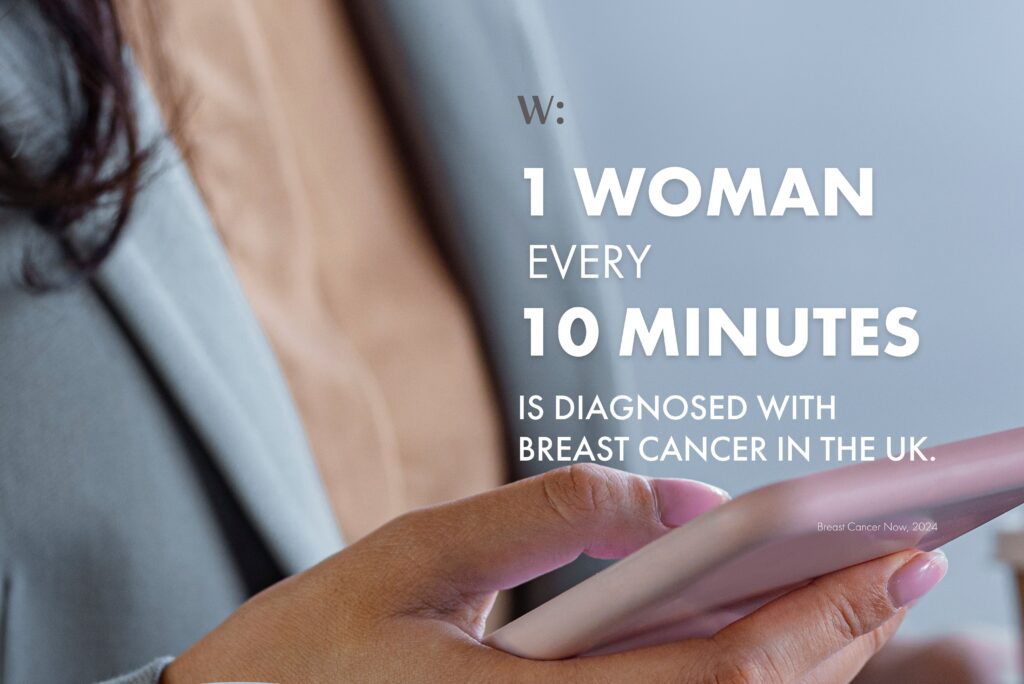
With 1 woman in the UK being diagnosed with breast cancer every 10 minutes*, understanding your potential risks of this chronic condition should be a key aspect of your preventative female health care protocol.
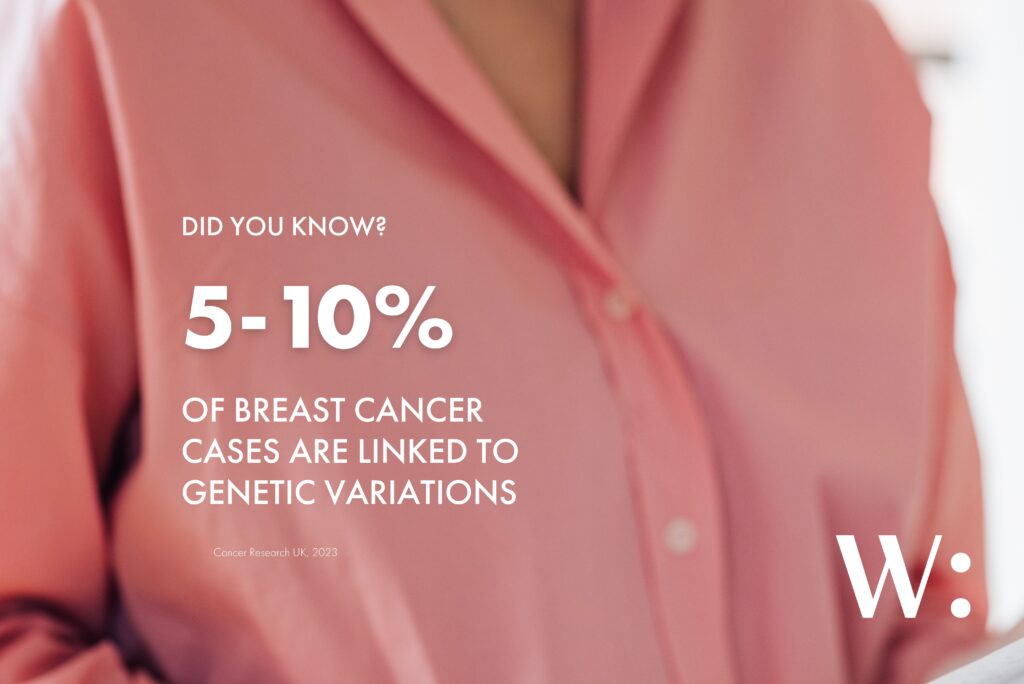
Whilst genetic variants such as the BRCA gene account for only 5-10% of breast cancer cases*, the remaining 90+% of cases are due to an imbalance in environmental and lifestyle influences, including our very own hormones — especially estrogen metabolites — which are pivotal in understanding and assessing breast cancer risks.
Estrogen is interesting as a hormone – besides its typical role in female development, menstruation and fertility, it has a two fold approach in terms of its impact on our health. Some estrogen is good for us, with researched protective functions against breast cancer and other cancers, reduces cardiac disease risk and is even a known beauty hormone with its positive impact on collagen production. But estrogen can be a troublemaker on the inside if you are not clearing it well, with certain estrogen pathways increasing your risk of DNA damage, cancer growth and inflammation.
Understanding estrogen metabolism and hormone balance is key to helping you understand your risks for chronic disease, including breast cancer. We are often asked, “Can hormone testing help detect breast cancer risks?”; and one of the most advanced tools for this is the functional DUTCH® Test (Dried Urine Test for Comprehensive Hormones), which Willbe uses to assess your estrogen metabolite profile.
Estrogen itself is not inherently dangerous. However, the way your body metabolises and detoxifies estrogen can determine whether you are at a higher or lower risk for developing hormone-driven cancers like breast cancer. The DUTCH® test breaks down estrogen metabolism into its three primary pathways:
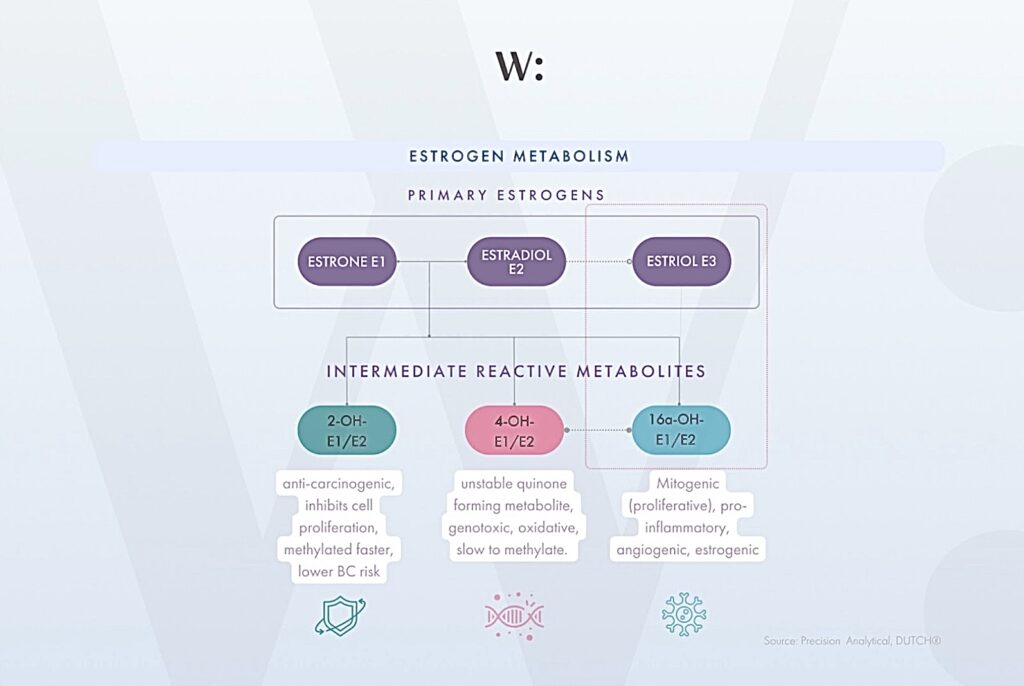
By identifying which estrogen pathway is favoured in your body, we can help you adopt scientifically valid strategies to promote healthier estrogen metabolism and reduce the likelihood of harmful metabolite buildup. And the evidence is clear. Higher levels of “good” estrogen (2OH) are linked to a 28% reduction in breast cancer risk, along with improved survival rates – Ziegler et al (2015).
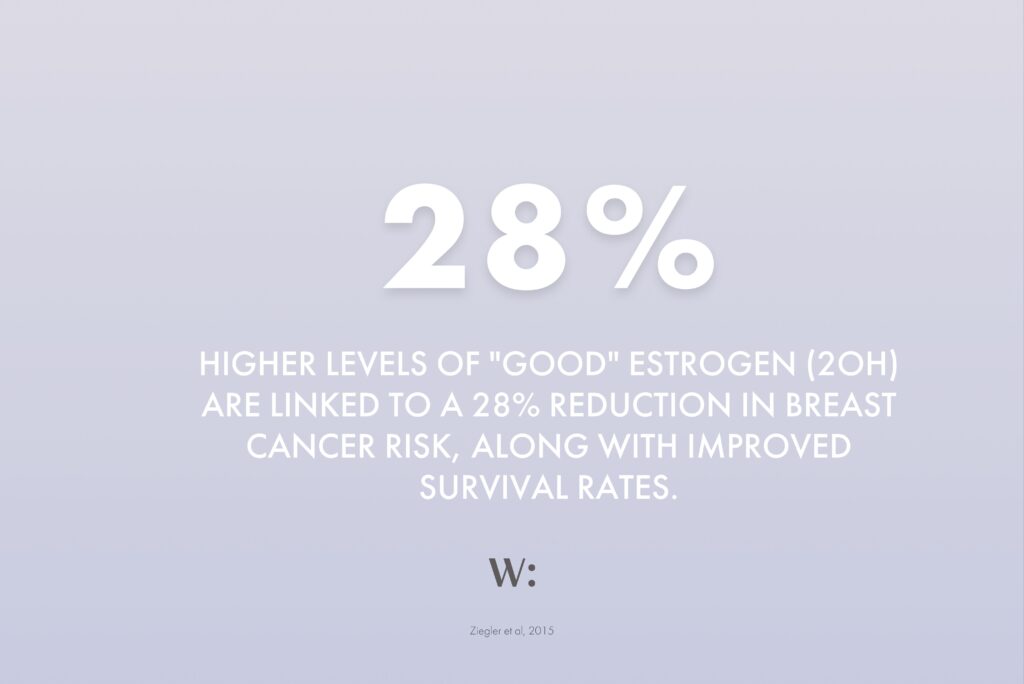
And when we compare the ratio of healthy 2OH to 4OH or 16OH, this gives us a clear indication of assessing any potential negative impact that estrogen metabolism may have on your cellular health.
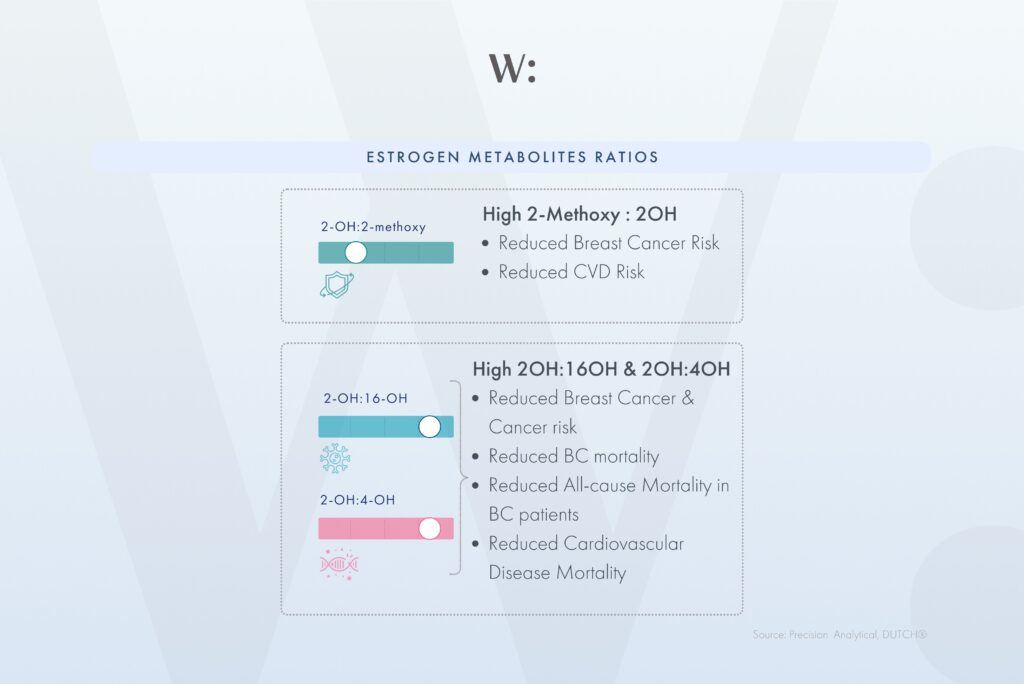
By taking a proactive approach to understanding your Estrogen levels, you can significantly impact your long-term health, for breast cancer, cardiac health and more.
The DUTCH® test provides a comprehensive analysis of sex and adrenal hormones, as well as their metabolites, giving an in-depth picture of how your body processes hormones like estrogen, progesterone, and cortisol. Unlike traditional blood tests, the DUTCH® test evaluates both hormone production and how these hormones are metabolised and cleared from the body. This is particularly important when it comes to estrogen metabolism, which is directly linked to breast cancer risk.

When considering the complexities of perimenopause and menopause, hormone replacement therapy is often brought into the spotlight. With key health benefits of replacing estrogen and other hormones, understanding your metabolic pathways and how your body metabolises hormones becomes crucial. For women in perimenopause, monitoring hormone fluctuations is key to addressing concerns such as perimenopause and breast cancer risk, as ineffective hormone management can lead to an increased likelihood of developing hormone-driven cancers.
The DUTCH ® test also helps us further understand how various symptoms of perimenopause may be influenced by your estrogen metabolites. Ensuring optimal levels of 4OH and 16OH can support a healthier, less symptomatic perimenopause.
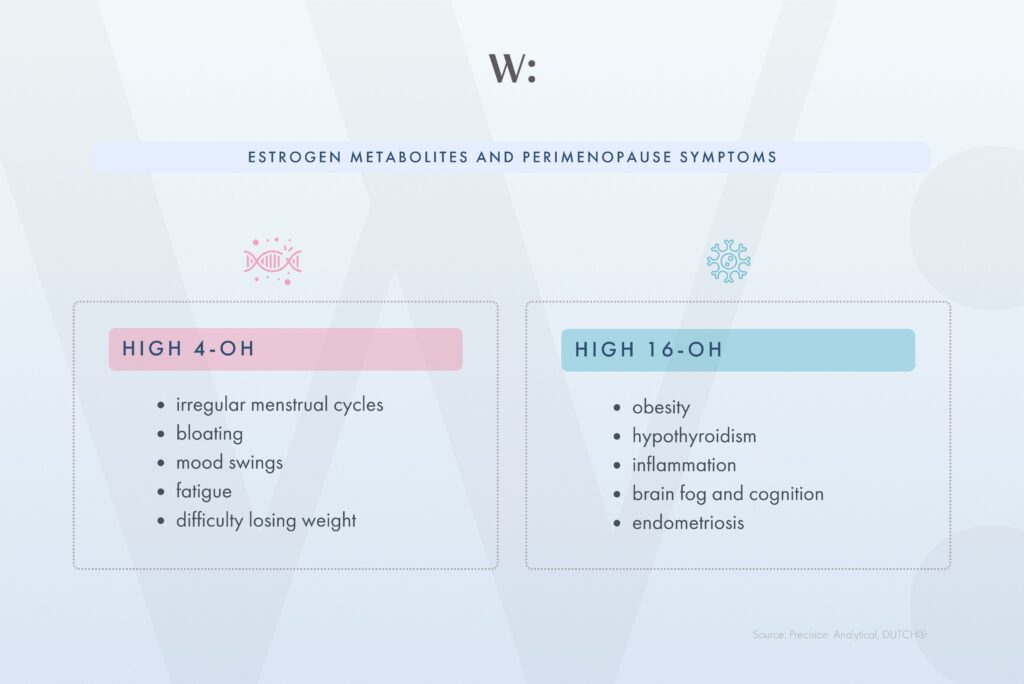
And whilst hormone replacement therapy and breast cancer concerns often arise, the DUTCH® test provides a detailed analysis of how estrogen and other hormones are metabolised, so you can make an informed choice about your healthcare. This in-depth insight ensures that Bioidentical Hormone replacement therapy (HRT) is tailored to an individual’s unique needs, optimizing estrogen clearance and reducing potential risks. Incorporating DUTCH testing into HRT regimens can help women in menopause and perimenopause make informed decisions about their hormone health, minimizing cancer risks while reaping the benefits of therapy.
At Willbe., our approach goes beyond traditional hormone testing. We merge the best of both traditional and functional medicine to offer personalised, science-backed solutions. Our team of experts have researched protocols that optimise estrogen clearance, with the goal of preventing breast cancer and other hormone-driven health issues. This approach allows us to offer solutions that are both effective and rooted in proven medical science.
Our functional medicine approach looks at your body in an integrated manner, identifying not just hormonal imbalances but also underlying factors such as gut health, detoxification pathways, and stress response, which all influence hormone metabolism. This multi-faceted approach ensures we address the root cause of hormone imbalances, rather than merely treating symptoms.
At Willbe., we believe in empowering women with knowledge and tools to take charge of their health. That’s why we’re offering a special October & November promotion on the DUTCH® test as part of Breast Cancer Awareness Month, alongside a series of expert-led webinars to guide you through hormone health, breast cancer risk, and prevention strategies.

Understanding the complex results of a DUTCH test requires specialised knowledge. That’s why at Willbe., we’ve brought together a team of functional medicine experts trained in hormone health and breast cancer prevention. With every DUTCH test, you receive:
By analysing your results, our team can pinpoint whether you are producing higher levels of harmful estrogen metabolites and offer targeted interventions. Our protocols are designed to improve the detoxification and clearance of estrogen from the body, helping to shift estrogen metabolism toward the safer, 2-OH pathway and away from the more dangerous 4-OH and 16-OH metabolites.
At Willbe., we’ve developed evidence-based protocols to ensure optimal estrogen detoxification and clearance from the body. These protocols include:
In recognition of Breast Cancer Awareness Month, we are offering a special promotion on the DUTCH® test throughout October & November. This is the perfect opportunity for women to take a proactive step in their breast health journey. Our special offer includes:
Understanding how your body metabolises estrogen is a crucial factor in preventing hormone-driven cancers like breast cancer.
The DUTCH® test offers a powerful tool for assessing these hormone dynamics, and at Willbe., we provide expert analysis and functional medicine protocols that support optimal estrogen metabolism and clearance.
By addressing your hormone health, whether you are premenopausal, perimenopausal or postmenopausal, we can help you assess your risks of breast cancer and help optimise your long-term hormonal health.
Take advantage of our special offer during Breast Cancer Awareness Month and gain the insights and support you need to protect your health.
*References: Breast Cancer Now, 2024, Cancer Research UK, 2023, Precision Analytical, DUTCH®, Ziegler et al, Epidemiologic Studies of Estrogen Metabolism and Breast Cancer, 2015
© 2025 — Willbe, All rights reserved. Willbe & FemGene® are Trade Marks registered to Willbe Group Ltd. This product is not intended to diagnose, treat, cure, or prevent any disease.